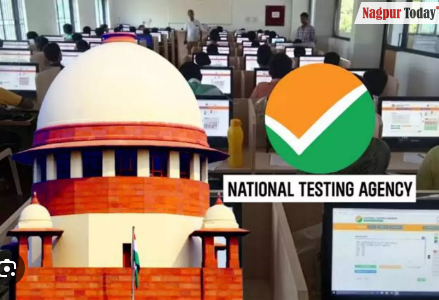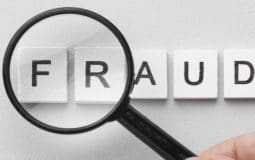
New Delhi: The Supreme Court on Friday directed the National Testing Agency (NTA) — the under-fire central body responsible for the conduct of the NEET-UG test — to “rectify deficiencies in the exam system”, including using technology to identify faults in its cybersecurity profile to prevent paper leaks.
The court also told the NTA to avoid “flip-flops” in the context of the NEET exam, which was held on May 5 but ran into trouble a month later, when results were declared. Such “flip-flops” do not serve students’ interests, the court told the agency. “We have highlighted all deficiencies in the structural processes… this we cannot afford for the betterment of the students,” the court said Friday morning.
The bench led by Chief Justice DY Chandrachud has given the Centre’s committee — a seven-member panel led by ex-ISRO chief Dr K Radhakrishnan and including former AIIMS (Delhi) Director Dr Randeep Guleria — time till September 30 to present its report. The committee has been tasked with analysing the entire examination process and suggest changes to make it more efficient.
“Report of committee to be submitted by September 30 to the government. Ministry of Education shall report compliance of committee and decision to implement measures in two weeks.”
The court offered eight points to guide the committee, including laying out a standard operating procedure, or protocol, for conduct of qualifying exams, a review of process of allotting exam centres and enhanced identity checks of candidates, and CCTV monitoring of exam centres. Another point was to ensure “secure logistics providers for ensuring non-tampering of question papers”; this is crucial given the 2024 NEET-UG exam papers may have been leaked while they were being transported — in locked boxes — from where they were printed to the exam centres.
On the larger question of leaked exam papers, the court said it was satisfied “there was no systemic breach… the leak was limited to Patna (in Bihar) and Hazaribagh (in Jharkhand)”.
The Hazaribagh leak has been flagged as ‘Ground Zero’ by the CBI, which has been tasked with investigating a nation-wide ‘solver gang’ racket that leaks question papers. The agency has made multiple arrests since, including a man called Rakesh Ranjan, alias Rocky, the alleged kingpin.
The central agency has also filed its first chargesheet in this case. It has named 13 people, including four candidates, a junior engineer and two individuals labelled as ‘kingpins’. Stating parents of some students had also been named, officials said the agency would file at least one supplementary chargesheet as investigations proceed.
The Chief Justice also observed there is a need to have counselling programmes to ensure mental welfare of students, as well as training for staff and management to handle such concerns.
Last week the court ruled out a full re-test. Hearing a clutch of petitions asking for the exam to be held again, the court said it was not satisfied there was a large-scale breach of its “sanctity”.
The court admitted the paper had been leaked but said there was no material on record to conclude “the result of the exam was vitiated”. “Data on record is not indicative of a systemic leak of the question paper, which would lead to the destruction of the sanctity of the exam…” the court said.
“The court is also mindful of the fact directing a fresh exam would have serious consequences on students, including destruction of admission schedule, effects on education, and availability of medical professionals in the future.”
The controversy over the exam, held May 5, broke after red flags were raised over the number — 67 — of perfect scores, including a coaching centre in Haryana’s Bahadurgarh that produced six on its own. There were also questions over the award of ‘grace marks’ for 1,563 students.
A retest for those 1,563 was held, but hundreds did not appear and many of those who did scored significantly fewer marks. This included the six from the Haryana centre; they got only 682 this time. There was also a separate row over two ‘correct’ answers for one question in the Physics section.
The Supreme Court referred the question to experts from IIT (Delhi). Subsequently, students who had picked what the experts said was the incorrect answer lost four marks. At least 44 students, who chose the alternative answer, received “grace marks” and achieved a perfect score of 720/720.















